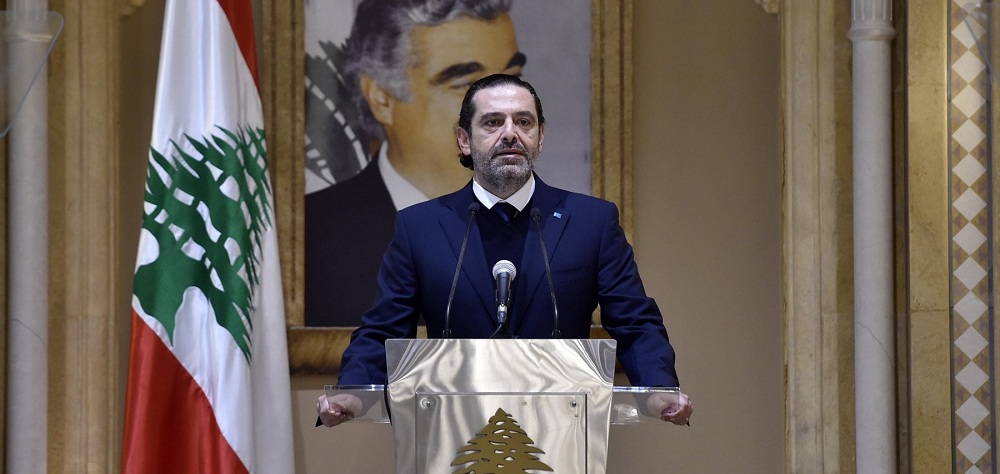Alwaght- Lebanon's ex-PM Saad Hariri who portrays himself mostly as an ethnic figure among Sunnis recently said he plans suspending his political activities, though not clear this means his retirement. He also did not explain why he is making such a move, but suspension of the move means that he has a hope to return to the political scene in indefinite future.
Alwaght has arranged an interview with Musaib Naeemi, a regional affairs expert who closely follows Lebanon developments, asking him about the Lebanese conditions.
Asked about the reason behind Hariri announcement, Mr Naeemi said that there are different drivers behind this decision, the first of which is his detention in Saudi Arabia while a prime minister in 2017.
During the arrest of Hariri and his release with the French mediation, Saudi officials set conditions for then Lebanese PM, affecting his assets, properties and family in Saudi Arabia. In fact, Saudi Arabia released Hariri on certain conditions and made demands of him. The second issue is related to the Lebanese economic crisis, which began and surged under Hariri premiership, and many blame Hariri's incompetence and complicity with economic corrupts for the economic crisis. And third, Hariri does not have much of a popular position.
"He is more dependent on France and Saudi Arabia than on Lebanon, spends most of his time outside Lebanon, and knows that if he returns, not only will he not be able to solve Lebanon's problems but also the situation in Lebanon may worsen. Hence, Hariri himself is worried about his future and knows that popular sentiments and movements against him may grow larger."
The fourth reason for Hariri to declare departure from politics, according to Mr Naeemi, is his personal political setbacks and bitter experiences of defeat. In the beginning of the Syrian conflict, he backed takfiri and fundamentalist groups fighting President Bashar al-Assad in hope of seeing Syrian leader collapse. This is a black stain in his political record, many agree, though it is believed that he has no independent policy and is a pawn of Saudi rulers. So, now it looks quite natural that he no longer thinks politics.
"In fact, in the developments surrounding the government formation, Saudi Arabia opposed Hariri's candidacy. Hariri was a partner in many projects with former Saudi leaders and rulers before bin Salman assumed the power. When bin Salman took the power, he did not tolerate Hariri and even arrested his partners from the royals in Riyadh."
Mr Naeemi was asked about the status of the government in Lebanon and if there is still an impasse. He answered that the government now in Lebanon is still under foreign influence, including that of Saudi Arabia and some other Persian Gulf Arab states. Government of PM Najib Mikati thinks that it can patch up things via dependence on the Arab monarchies. But it actually chases a mirage setting its hope on them.
"The hierarchical monarchies in the Persian Gulf Arab states do not want a democratic and popular government in Lebanon. They sowed several crises for the new Lebanese government, including the dispute with Beirut over the comments by Lebanese Information Minister George Kordahi, who was forced to resign for his criticism of Saudi war on Yemen."
These crises are constantly forming against the Lebanese government. Another crisis in the path of Mikati's government is the disarray in the cabinet complex. Mikati has no independence of decision and other groups and parties plot against him. His opponents take measures to pressure him. This is frustrating for people and making them await new elections for new leaders.
Asked if Hariri announcement is related to the current dead-end in Beirut and the situation of Mikati's cabinet, Mr Naeemi said that the decision is related to the political standoff. The government is planned to prepare the country for the general elections. Now a debate of the election is underway and there are differences over how to hold it. Future Movement of Saad Hariri is rocked by division. Some of the party members defected and a collapse in Hariri-dominated political and economic structure is brewing. Many of his media outlets have gone bankrupt, as have many of his businesses and companies. He is now leaning toward life and business in France rather than in Lebanon.
Mr Naeemi commented on the outlook for Lebanon government, saying he has no doubt Lebanon is neither partitionable nor subject to going back. The Lebanese groups are inclined to face the fact and accept the conditions within legal frameworks, though they are seeking a new generation of politicians. The politics in Lebanon have developed in a way that no party can eliminate the other and thus they see it unavoidable to work together, though as long as they continue to fail to get along and put the national interests on top, the crisis would continue. Though the situation is critical, it cannot be worse and the country would not fully collapse. After all, the Lebanese inside the country are 4 million and outside it 12 million and so the expats support their families financially. The country would not experience dire collapse and poverty like some other crisis-stricken nations, despite its current crisis.



























